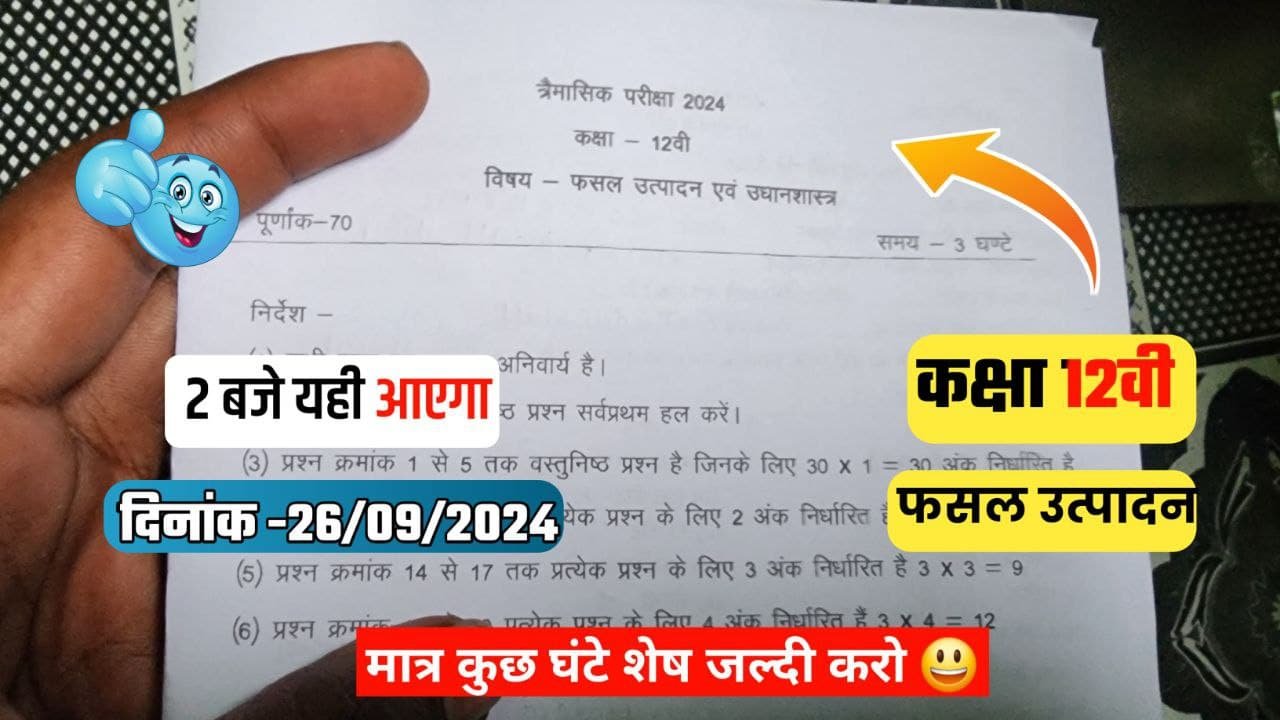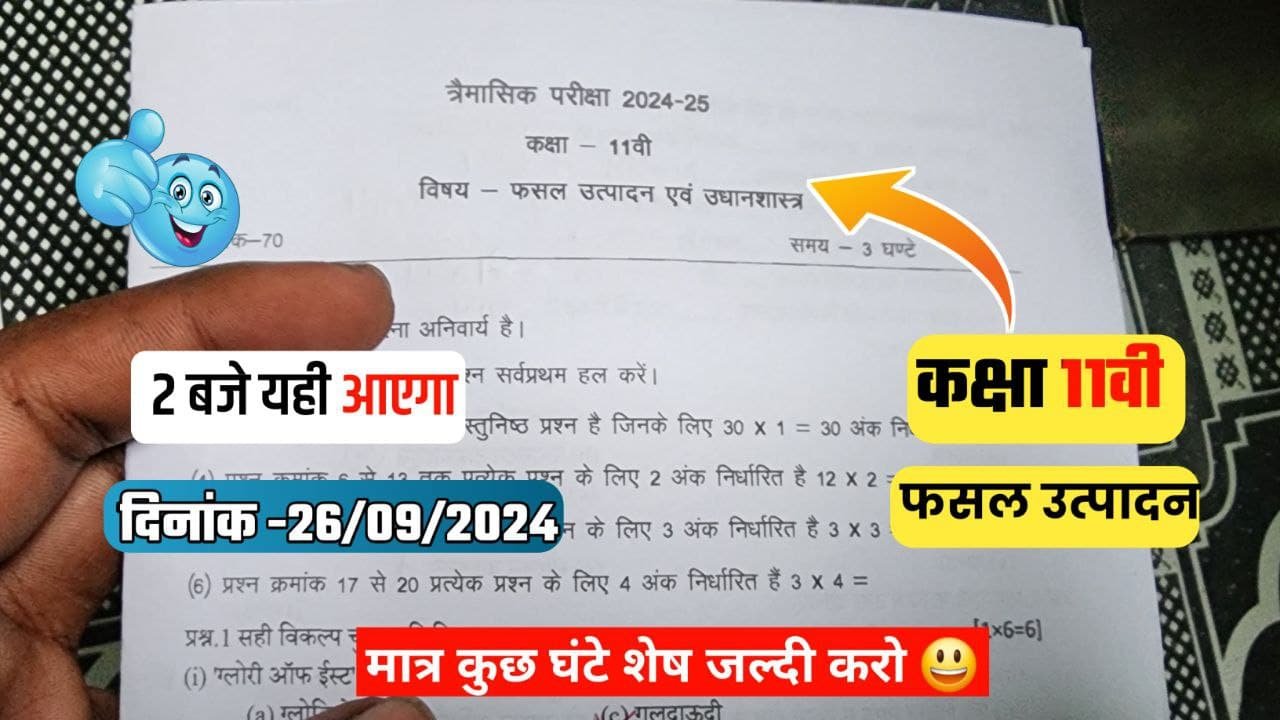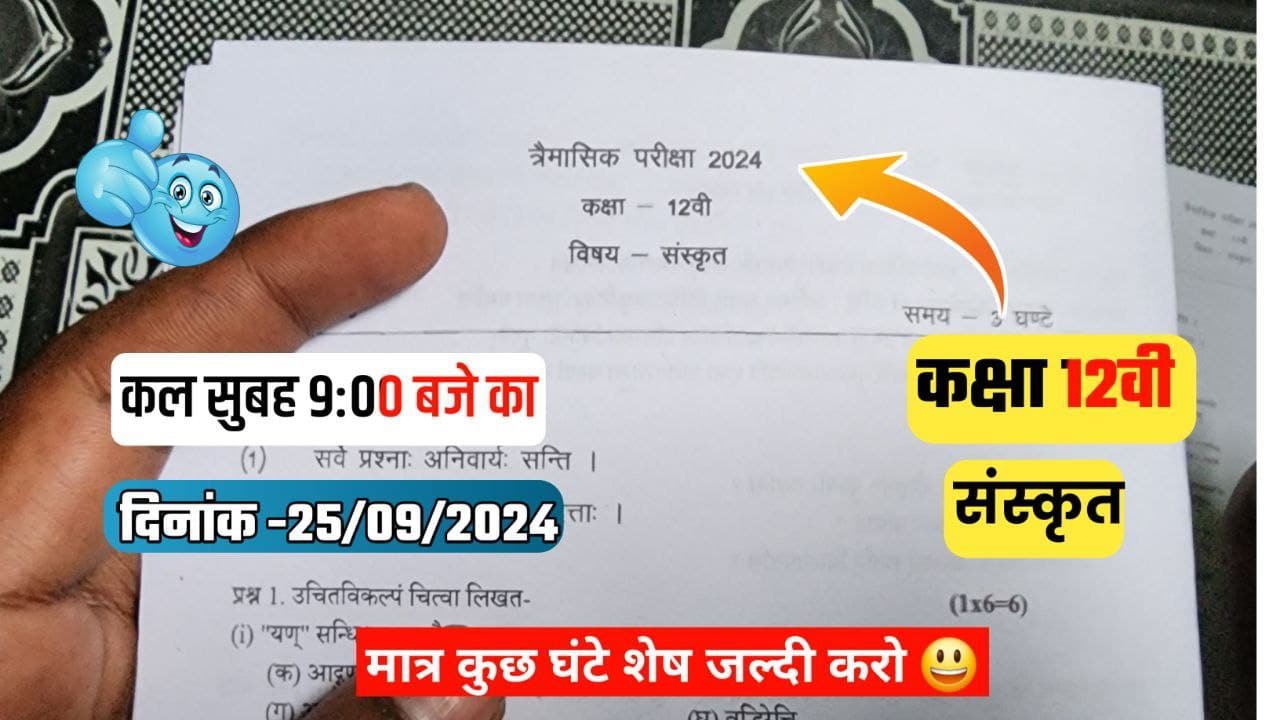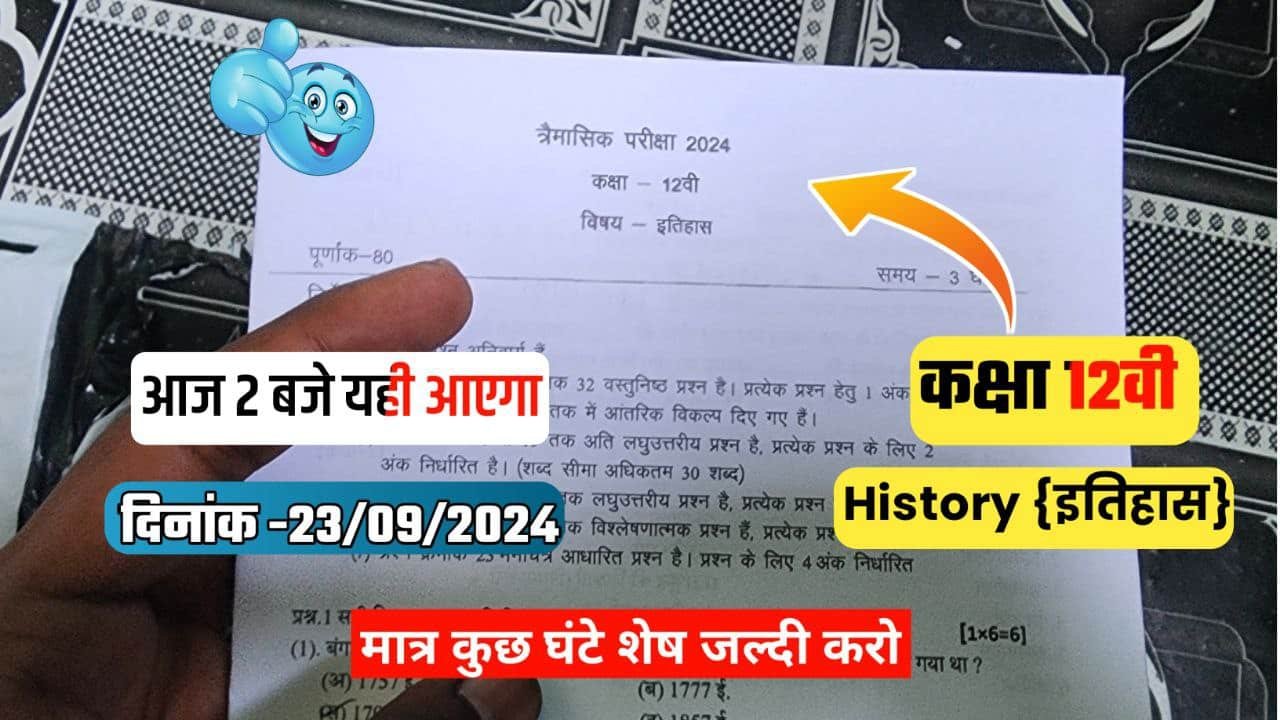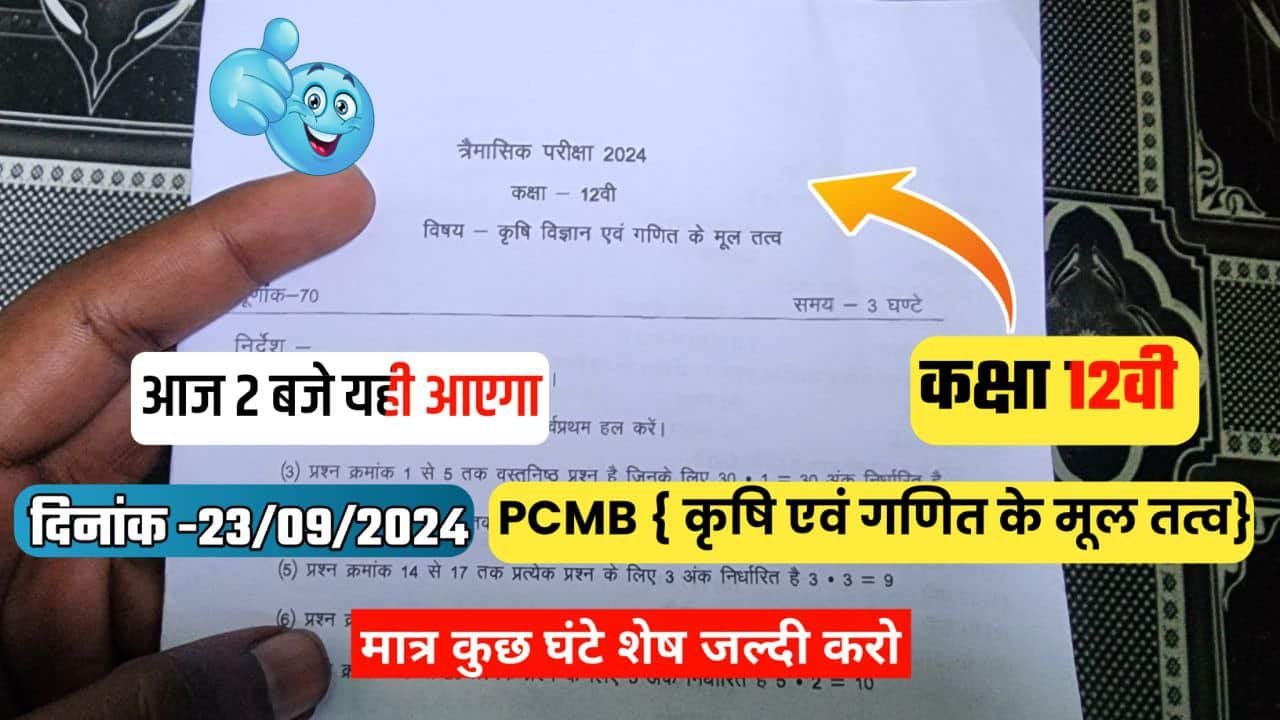Class 12 English Abhyas paper Set d full solution2023 mp board
Practice Set Paper-4
Class-XII
Subject-English
Time:3 hours Total Marks:80
Instructions:
Read all the questions carefully.
Read the instructions given with the questions before attempting them.
Marks of each question are indicated against them.
Section-A (Reading)
Q.1. Read the passages and answer the questions that follow. 1×10=10
The four-year tiger census report, Status of Tigers in India, 2018, released by
Prime Minister Narendra Modi shows numbers of the cat have increased across
all landscapes.
The Global Tiger Forum, an international collaboration of tiger-bearing
countries, has set a goal of doubling the count of wild tigers by 2022. More than
80% of the world’s wild tigers are in India, and it’s crucial to keep track of their
numbers.
The total count in 2018 has risen to 2,967 from 2,226 in 2014 — an increase of
741 individuals an increase of 33%, in four years. This is by far the biggest
increase in terms of both numbers and percentage since the four- yearly census
using camera traps and the capture-mark-recapture method began in 2006. The
2018 figure has a great degree of credibility because, according to the report, as
many as 2,461 individual tigers (83% of the total) have actually been
photographed by trap cameras. In 2014, only 1,540 individuals (69%) were
photographed. The tiger census is needed because the tiger sits at the peak of
the food chain, and its conservation is important to ensure the well-being of the
forest ecosystem. The tiger estimation exercise includes habitat assessment and
prey estimation. The numbers reflect the success or failure of conservation
efforts. This is an especially important indicator in a fast- growing economy like
India where the pressures of development often run counter to the demands of
conservation.
Where has the tiger population increased the most?
The biggest increase has been in Madhya Pradesh — a massive 218 individuals
(71%) from 308 in 2014 to 526. However, since tigers keep moving between
states, conservationists prefer to talk about tiger numbers in terms of
landscapes.
So, why have the numbers gone up?
The success owes a lot to increased vigilance and conservation efforts by the
Forest Department. From 28 in 2006, the number of tiger reserves went up to
50 in 2018, extending protection to larger numbers of tigers over the years.
Healthy increases in core area populations eventually lead to migrations to areas
outside the core; this is why the 2018 census has found tigers in newer areas.
Over the years, there has been increased focus on tigers even in the areas under
the territorial and commercial forestry arms of Forest Departments.
The other important reason is increased vigilance, and the fact that organized
poaching rackets have been all but crushed. According to Nitin Desai of Wildlife
Protection Society of India, there has been no organized poaching by traditional
gangs in Central Indian landscapes since 2013.
The increased protection has encouraged the tiger to breed. Tigers are fast
breeders when conditions are conducive. The rehabilitation of villages outside
core areas in many parts of the country has led to the availability of more
inviolate space for tigers. Also, because estimation exercises have become
increasingly more accurate over the years, it is possible that many tigers that
eluded enumerators in earlier exercises were counted this time.
Questions.
i. The Global Tiger Forum comprises –
a. National Geographic and World Wildlife Fund.
b. America and the European Union.
c. all countries of the United Nations.
d. countries which have tigers.
ii. The biggest increase in tiger population has been between the years
a. 2002-2006 b. 2010-2014
c. 2006-2010 d. 2014-2018
iii. The year 2022 marks the target date for –
a. doubling the count of India’s tiger population.
b. tripling India’s tiger population.
C. tripling the world tiger population.
d. doubling the count of world tiger population.
iv. 2018 census on the big cat has been the most reliable because-
a. it photographed 83% of the tigers.
b. it photographed 1540 tigers.
c. it photographed all living tigers of India.
d. it only uses the capture-mark-recapture
v. The survival of the tiger is vital today because-
a. it promotes tourism in India and increases revenue.
b. it is central to the food chain and the eco system.
c. it is now on the verge of extinction.
d. it is no longer a threat to the villagers’ safety.
vi. Researchers refer to places where tigers are found not by states but by the
term-
a. deep forests b. ecosystems
c. landscapes d. green belts
vii. What is the tiger population of Madhya Pradesh?
a. 741 b. 50
c. 28 d. 526
viii. Which of the following statements is NOT true as per the passage?
a. Poaching gangs have been reduced drastically.
b. There are more reliable ways of data collection.
c. The tiger reserves have increased to 50 in 2018.
d. Forest departments have become more watchful.
ix. Which of the followings has been the impact of providing inviolate spaces for
tigers?
a. Tiger numbers have increased due to safe breeding places.
b. The poachers have been caught in these spaces very easily.
c. Tigers have moved from Uttar Pradesh to Madhya Pradesh.
d. The number of villagers killed by man eater tigers has increased.
x. Which of the following words is similar in meaning to: CONDUCIVE
a. reclusive b. hindering
c. helpful d. unfavourable
Q.2. Read the following passage carefully and make notes on it also give a
suitable title to it. 4
The function of education is to prepare young people to understand the whole
process of life. The end of education is not merely to pass some examinations
and get a job and earn one’s livelihood. If education is to make people
understand life, then surely life is not merely a job or an occupation; life is
something extraordinarily wide and profound, it is a great mystery, a vast realm
in which we function as human beings. If we prepare ourselves only to earn a
livelihood, we shall miss the whole point of life. To understand life is much more
important than to get a degree or pass an examination for a job. Life, with all its
subtleties, is such a vast expanse. It has its extraordinary beauty, its sorrows and
joys. It also has its hidden things of the mind such as envies, ambitions, passions,
fears, fulfilments and anxieties. The birds, the flowers, the flourishing trees, the
heavens, the stars, the rivers and the fishes therein-all this is life. When we are
young we must seek and find out what life is all about. Thus we cultivate
intelligence with the help of education. Intelligence is the capacity to think
freely, without fear, without a formula, so that we begin to discover for
ourselves what is real and what is true. Anyone who is gripped with fear will
never be intelligent. Most of us have fear in one form or another. Where there
is fear there is no intelligence. Thus what education should do is help us
understand the need of freedom. Unless we are free we will not understand the
whole process of living. When we are free we have no fear. We do not imitate
but we discover.
Section-B (Writing)
Q.3. You are Aishwarya Patel, student of class XII of Govt.HSS, Dewas. You have
found a bag in the school playground. Prepare a notice for the school notice
board giving the information about the bag.
4
Or
You are the secretary of Society for Prevention of Cruelty to Animals. Prepare an
attractive poster appealing the people to be kind to animals.
Q.4. Write a letter to the collector of your district about the lack of facilities and
malfunctioning of the government hospital of your area. 4
Or
You are Mohan Verma living at 121 Sharda Colony Jabalpur. Write a letter to
your father about your hostel life as you have joined the hostel recently.
Q.5. With the help of the following words given below produce a write up on
‘NSS Camp’ (in about 120 words) 4
a. NSS Camp in Rampur village b.100 volunteers
c. Planting of trees d. cleaning of drains
e. Adult literacy classes
or
Write a short paragraph on any one of the following topics in about 120 words.
A- The Problem of Unemployment B-Value of Games and Sports
C- Harmful Effects of Junk food D- Online Education: Boon or Bane
Section-C (Grammar)
Q.6. Fill in the blanks (any five) 1×5=5
i. I ………………. sing better when I was younger. (should, would, could)
ii. He is junior ……………. you. (than. from, to)
iii. They have hardly……….. Knowledge of English. (any, some, many)
iv. I ………………. anything since morning. (haven’t eaten, didn’t eat, don’t eat)
v. Where is ………… book that I gave you yesterday. (a, an, the)
vi. ……………… he worked hard, he failed. (as soon as, if, though)
Q.7. Do as directed (any five) 1×5=5
i. He did not study well. He failed.
(Combine the pair of sentences using ‘because’)
ii. A dog bit my friend. (Change into negative)
iii. As soon as the Sun rises, I wake up.
(Rewrite the sentence using ‘no sooner……. than’)
iv. If it rains, we will not play. (Rewrite the sentence using ‘unless’)
v. I am sure of it. He will come today.
(Combine the pair of sentences into a complex sentence having a noun clause.)
vi. They were too slow to win the race. (Rewrite the sentence using ‘so…….
that’)
Section-D (Text Books)
Q.8. Read the following extract and answer the questions that follow. 1×5=5
When I passed the town hall, there was a crowd in front of the bulletin-board.
For the last two years all our bad news had come from there-the lost battles, the
draft, the orders of the commanding officer-and I thought to myself, without
stopping. “What can be the matter. Now? “Then, as I hurried by as fast as I could
go, the blacksmith, Watcher, who was there, with his apprentice, reading the
bulletin, called after me, “Don’t go so fast, bub: you’ll get to your school in plenty
of time! “I thought he was making fun of me, and reached M Hamel’s little
garden all out of breath.
Questions.
i. Where had all the bad news come from for last two years?
a. school b. Prussia
c. Alsace d. Bulletin-board
ii. What did the blacksmith say to Franz?
a. to read the bulletin-board b. to complete his homework
c. to hurry to school d. to not go so fast
iii. What has M Hamel’s ‘little garden’ been referred to in this extract?
a. his home b. his school
c. his country d. his garden
iv. Which of these means ‘apprentice’?
a. mentor b. amateur
c. engineer d. writer
v. What was the motive of the blacksmith Watcher?
a. To ridicule Franz
b. To boost the morale of Franz
c. To dominate little Franz
d. To make him realize the importance of his mother tongue
Q.9. Read the following extracts and answer the questions that follow.
(A) When Aunt is dead, her terrified hands will lie
Still ringed with ordeals she was mastered by.
The tigers in the panel that she made
Will go on prancing, and unafraid.
Questions: 1×3=3
i. The above extract has been taken from—
a. Keeping Quiet b. Aunt Jennifer’s Tigers
c. A Roadside Stand d. A Thing of Beauty
ii. Who will go on prancing?
a. aunt b. tigers
c. both a and b d. none of the above
iii. The word ‘terrified’ means—
a. frightened b. excited
c. tire d. pleased.
(B). The injured man was an American. As his cap fell off, they saw his wet,
yellow – coloured hair which had not been cut for a long time. He was young,
his face had such marks which indicated that he had been tortured. He had a
rough, unkempt yellow – coloured beard. As he had fainted, he did not know of
the presence of Sadao and Hana.
Now Sadao remembered the wound, and with his expert fingers he began to
search for it. Blood flowed freshly at his touch. On the right side of his lower
back Sadao saw that a gun wound had been reopened. The flesh was blackened
with powder. Sometime, not many days ago, the man had been shot and had
not been tended. It was bad chance that the rock had struck the wound.
Questions: 1×4=4
i. Who was the injured man?
a. British b. American
c. Japanese d. Indian
ii. How did the man get injured?
a. by gun b. by stones
c. by sword d. none of the avobe
iii. Who was Sadao?
a. a soldier b. a fisherman
c. a doctor d. a farmer
iv. The face of the injured man indicated
a. that he was in pain b. that he was tortured
c. that he was old d. that he was handsome
Q.10 Answer the following questions in about 30 words. (any five) 2×5=10
i. Why the order from Berlin is called a thunderclap by Franz?
ii. Why was Saheb unhappy while working at the tea-stall?
Iii. Why was Douglas determined to get over his fear of water?
iv. Why was the crofter so talkative and friendly with the peddler?
v. Why is Pancakes related to Gemini Studios?
vi. Why did Kipling dislike being interviewed?
vii. Where was it most likely that the two girls- Sophie and Jansie would find
work after school?
Q.11. Answer the following questions in about 30 words. (any three) 2×3=6
i. In the poem ‘My Mother at Sixty-Six’, why has the mother been compared to
the ‘late winter’s moon’?
ii. According to Pablo Neruda, how will ‘keeping quiet’ protect our environment?
iii. What pleasure does a beautiful thing give us according to John Keats?
iv. In the poem ‘A Road Side Stand’, why does the poet call the car selfish?
Q.12. Answer the following questions in about 30 words. (any two) 2×2=4
i. How did Charley reach the third level of the Grand Central Station?
ii. Why was Dr. Sadao kept in Japan and not sent abroad with the troops?
iii. How does Derry get his face burnt?
Q.13. Answer the following questions in about 75 words. (any two) 3×2=6
i. Justify the title of the story ‘The Last Lesson’.
ii. What made the peddler finally change his ways?
iii. What is the example of the national integration that the author refers to, in
the lesson Poets and Pancakes?
Q.14. Answer the following question in about 75 words. 3×1=3
Write the central idea of the poem ‘My Mother at Sixty-Six’.
or
How does Aunt Jennifer express her bitterness and anger against males?
Q.15. Answer the following question in about 75 words. 3×1=3
Describe, briefly, Charley’s strange experience in the third level.
or
Write a character sketch of Dr. Sadao.
File size

